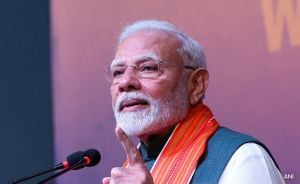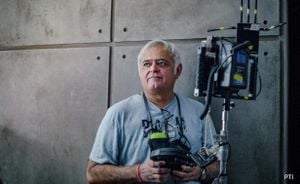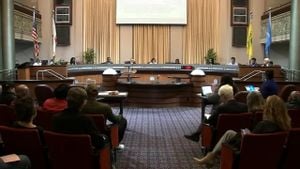German Chancellor Olaf Scholz is stepping back onto the political stage as the candidate for the Social Democratic Party (SPD) following the unexpected withdrawal of Defense Minister Boris Pistorius from the race for the chancellorship. This move sets the stage for the SPD as they prepare for a snap election scheduled for February 23, 2025. Scholz is no stranger to the pressures of leading Germany, but his path to re-election appears fraught with challenges as the SPD grapples with dwindling popularity.
The backdrop of this political maneuvering is the recent collapse of Scholz's coalition government, which he orchestrated by dismissing Finance Minister Christian Lindner, leading to significant political upheaval. The SPD, once regarded as the party of choice, is currently lagging behind the Christian Democratic Union (CDU), led by the rising star Friedrich Merz, who is polling at approximately 32%, compared to the SPD's meager 16% support.
Pistorius made his announcement clear through a video message shared on the SPD's WhatsApp channel, emphasizing, "This is my sovereign, personal, and entirely own decision. I did not launch this debate, I didn’t want it and I didn’t put myself forward for anything." While he presented his decision as solely personal, rumors circulated about the pressure placed on him by Scholz and other high-ranking party officials who rallied behind the idea of maintaining the status quo with Scholz as their candidate.
Analysts have pointed out the inherent risks of this move. Several party members have expressed dissatisfaction with Scholz's leadership, describing him as the weakest postwar candidate. The SPD is dealing with the repercussions of discontent over their handling of the economy, which has seen high inflation and issues related to Germany’s standing within Europe. There’s also criticism of Scholz’s capacity to manage the complex coalition composed of the FDP and the Greens, both of whom have opposed aspects of his leadership.
At the core of the criticism is Scholz's guidance during significant foreign policy initiatives, especially the contentious arms shipments to Ukraine. While his stance has appealed to the left-wing factions of the SPD due to his more cautious approach, critics argue he failed to communicate effectively with the electorate on key economic policies. The recent accusations from the FDP stating Scholz had orchestrated the coalition's downfall only exacerbate the sense of instability.
Given this turbulent history, the SPD's leadership seems to be retreating under the notion of sticking with the ‘safer’ choice of Scholz rather than opting for a fresh face, even one as popular as Pistorius. Scholz’s supporters within the party believe his experience as chancellor is significant for presenting stability at this volatile political juncture. Reports suggest the leadership is hopeful his track record will favorably position them against the opposition come election time.
The fate of the SPD and Scholz's ambitions hinge heavily on the public’s shifting sentiment. Polling indicates the tumultuous coalition period has been catastrophic for the party image, with many former supporters disillusioned. Matthias Miersch, secretary general of the SPD, has publicly called for accountability from the FDP and demanded responses from those who may have contributed to the collapse, framing their actions as detrimental to national integrity.
Plans for the campaign are underway, with discussions on presenting new proposals expected to emerge soon. Scholz is set to present his election manifesto on November 30, 2024, as the party rallies to solidify its position before the elections.
The political tension remains palpable as rival parties get ready to challenge Scholz and the SPD. The CDU's Merz, who has managed to invigorate their voter base, could be poised to emerge victoriously from this electoral fight. There’s growing apprehensiveness within the SPD not just about securing votes but also concerning the traditional strongholds of the party, particularly as other factions, such as the ultranationalist Alternative for Germany (AfD) continue to gain traction.
The upcoming election will serve as much more than just another round of voting; it's seen as indicative of the broader political shifts within Germany. If Scholz cannot secure re-election, it could lead to long-term ramifications for the SPD's relevance and coalition vision within German politics.
What is at stake is clear: Scholz not only seeks to maintain his leadership but also to redefine the SPD's future, which is currently on uncertain ground. With the election date steadily approaching, the answers will soon be evident—will the SPD resurrect itself and reclaim its former glory with Scholz at the helm, or will they see the rise of new political dynamics under Merz and the CDU?



